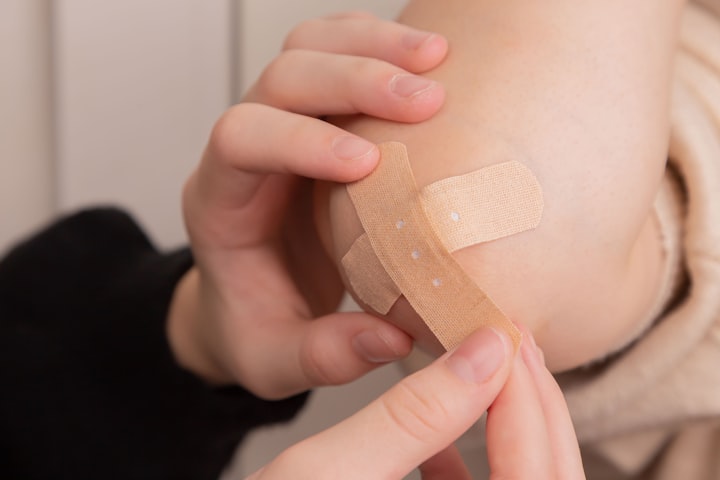Jesus Healed the Lepers without a Biohazard Suit On
In a world of antibacterial soaps and sterile environments, do we let our fear of sickness and death stop us from caring for the sick?

The Historical Jesus
First-century Hebrews didn't have personal protective equipment, only a set of health codes, one of which included avoiding lepers. The New Testament tells of Jesus entering leper colonies and healing them despite society believing lepers were unclean. Whether he had the power to heal or not, Jesus risked illness and death entering the leper colonies. He also risked infecting others with leprosy and other illnesses. As a divine figure in Christianity, a rabbi in Judaism, and a prophet in Islam, many believers emulate his example in many areas of life. I wonder how some might view his risks of contracting and spreading disease. What precautions he did take?
After pondering this ancient story, I wonder how we might better approach serving contagiously ill patients.
My Relative's Examples
When I was a preteen, my mom brought in a woman with pneumonia to our home, whom my parents and siblings served. I never considered how unique this was until later. Now that I'm older, I realize what an example my family has been to candidly serve those who are ill, even under contagious circumstances.
During my recent Davis family reunion, my in-laws all accepted the risk of becoming sick when we encouraged one sick family member to attend. We had fun and several of us came home sick. But to us, the risk outweighed the reward of bonding as a family.
As the caboose in a family of seven, I caught whatever illness circulated in my childhood home. Even when the illness had passed, I had lingering congestion, sneezing, and coughing due to abnormal nasal and sinus passages. During those times, a few mistreated me even when I likely wasn't contagious. For example, a store clerk held out a tissue at arm's length and told me to stand far away when my cousin, aunt, and I visited a makeup counter. I did as asked and felt utterly humiliated.
Once again, I had done nothing wrong, yet I was turned away. My aunt later commented on the store clerk's rudeness, which consoled me. Luckily, most friends and family didn't exclude me as a child. Because of these childhood experiences, I ponder why we sometimes treat contagiously ill persons as we do.
How We May Justify Not Serving Others
In my leper colony of six, we have some illness going around every month or so. I struggle when some ignore or avoid us when my children or my husband falls ill. But this is often the exception. Some will pass on ministering to my family. Some may say "I'm busy", "I can't risk infecting others", "I can't get sick", etc. These are valid reasons, yet it briefly stings. Mentally, I know most of their reasons make sense.
Truthfully, I am not perfect in this regard either. I am often busy with work and family. Sometimes I want to avoid getting sick or spreading it to my family. Yet I am reminded that as others risk disease to serve me, I need to risk disease to serve others (while we all take precautions at our comfort level).
From my observation, some Christians fall back on "Jesus will heal you" or many fall back on "thoughts and prayers" while neglecting the emotionally and physically ill. (Sometimes "thoughts and prayers" are the only possible response, and I usually find those sincere responses comforting.) Some justify their self-centered behavior with these phrases. It isn't selfish. Just self-focused.
One significant justification is only focusing on a select group to serve, such as immediate family or friends. (Albeit, we may only have the means to care for ourselves and our families.) I find we justify ourselves to serve those we like within our bubble, but not those we dislike. This may be according to personality type, political idealogy, religious beliefs, LGBTQ lifestyle, race, and so on. Sometimes, we let initial anger toward another group who "spread" the disease mutate into its own social disease of hate, especially in social media echo chambers.
We Can Take Precautions and Lift the Hands that Fall
Our first precautions to care for the sick begin with our physical and mental health. In order to serve, we need to practice hygiene, sleep enough, exercise, and eat a balanced diet. Consider a vaccine if that helps you feel more comfortable around the sick. We need to recognize our own physical and mental limitations when assessing how much to help others. Each person has different limitations, which others may not recognize. I believe many of us can stretch our efforts while watching for burnout.
According to our comfort level, we can don PPE while recognizing it only reduces the spreading of infection. Mentally, we need to accept that disease will spread and it can only be slowed down in some cases. For our mental health, we need to recognize diseases are beyond our control.
Lastly, we have many who are brave and will minister to the sick. They may wear masks, face shields, biohazard suits, or no PPE. Whatever they choose to wear, I value their service. Still, I appreciate it when I see the faces of medical personnel. We have many to thank and many to forgive. So let us be humble and serve one another.
*I have no moral high ground on treating the sick over others. I merely hope to improve along with all of you.
For more of my "preaching", subscribe to my Vocal page, or follow me on Twitter, Facebook, or my personal blog. And if you have a comfortable financial cushion, consider tipping or pledging. Thank you!






Comments
There are no comments for this story
Be the first to respond and start the conversation.